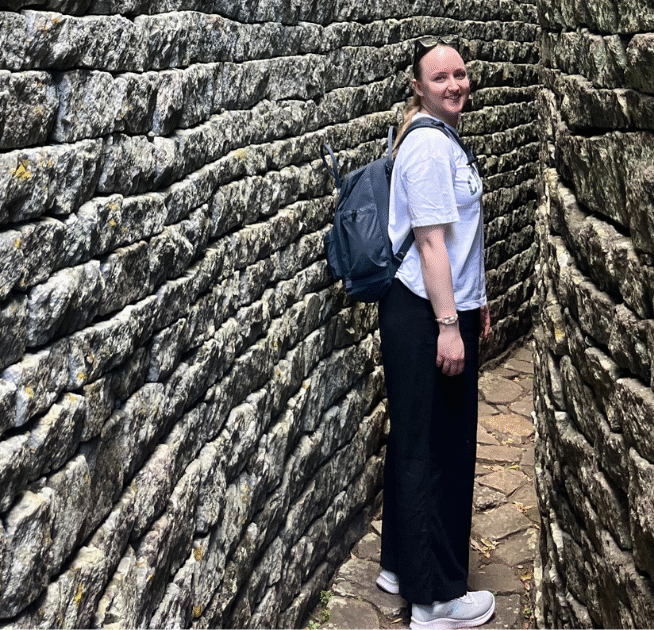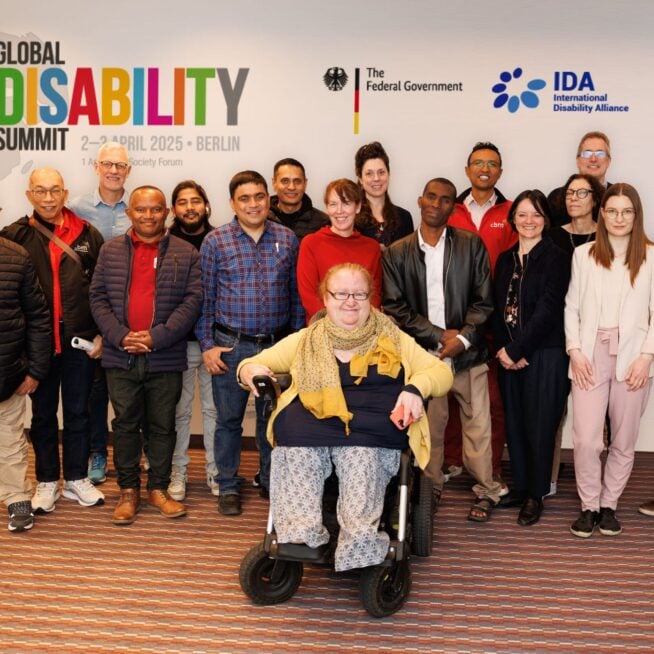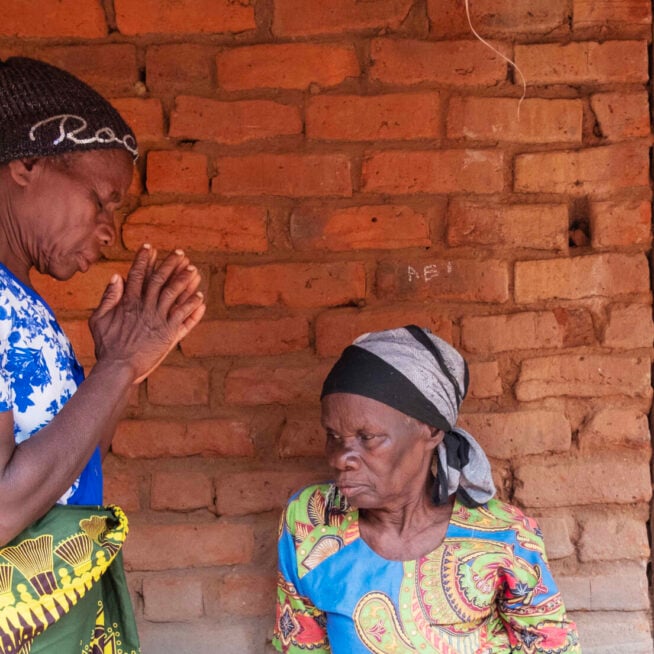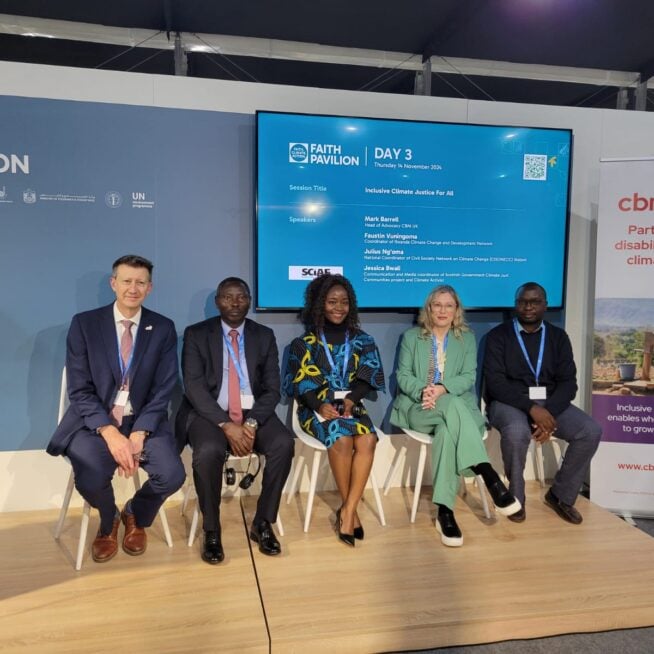Want to transform lives with us? Stay in touch and hear about our news, activities and appeals by email!
OPD Conversations: Sustaining a Disability Movement
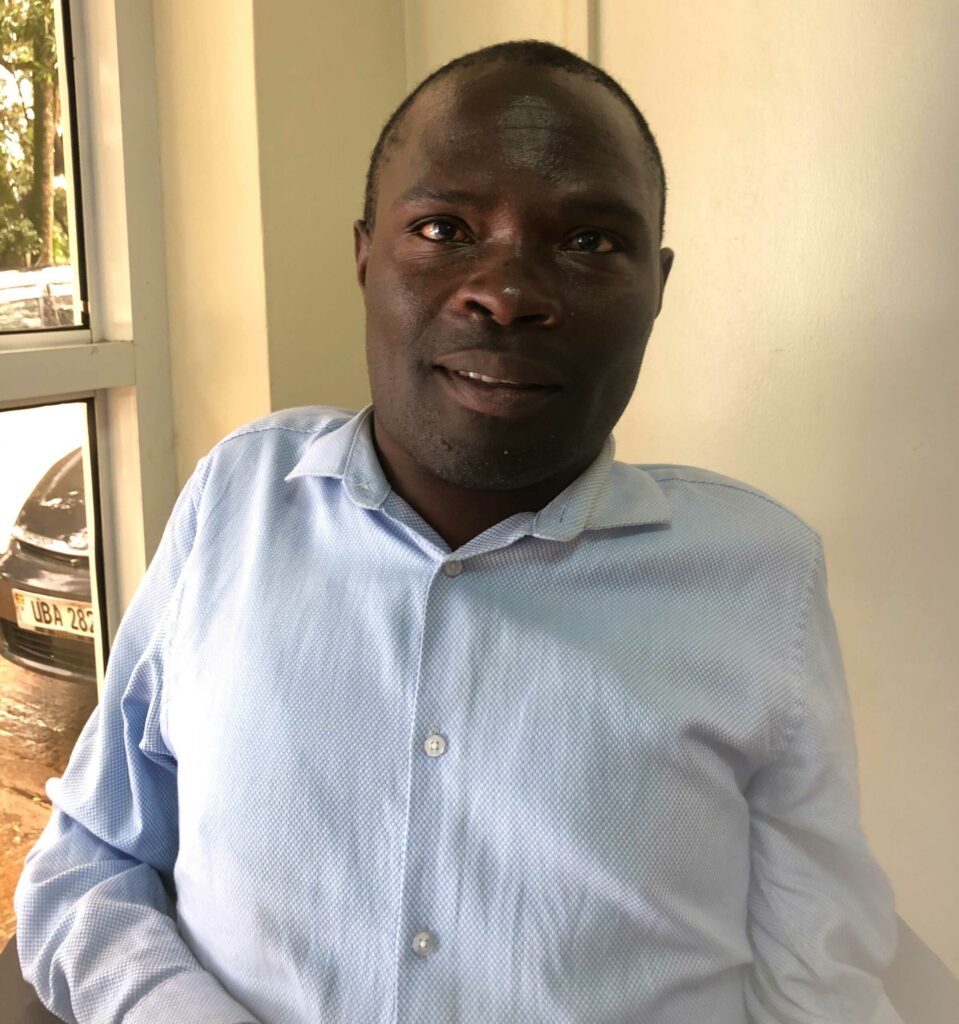
In the third blog of the series, disability activists discuss their roles as members of Organisations of Persons with Disabilities (OPDs) in advocating for the rights of all people with disabilities in Uganda. CBM UK is deeply committed to working alongside people with disabilities and OPDs to contribute to a more inclusive world. In order to identify contextually appropriate and sustainable solutions, it is vital to listen to and partner with the Disability Movement.
The disability activists that I interviewed seek to influence legislation and to build the capacity of other activists to claim their rights under the UN Convention on the Rights of Persons with Disabilities (CRPD). The Ugandan government is the main dutybearer but influencing other mainstream organisations also has the potential to effect positive change for people with disabilities. Improving inclusion in policy and programming may not be enough without reasonable accommodation being factored in to include any changes that enable a person with a disability to perform their job or participate in a task. Ronald Kasule, who works for the Ugandan Disabled Union, explains how he approaches advocacy to policymakers:
“I realised that reasonable accommodation is a right. When you request… it, it cannot be denied. And when you deny it, it becomes discrimination. So we train our partners, we tell government “Look here, persons with disabilities need reasonable accommodations to be able to participate effectively”, because they cannot participate effectively without support.”
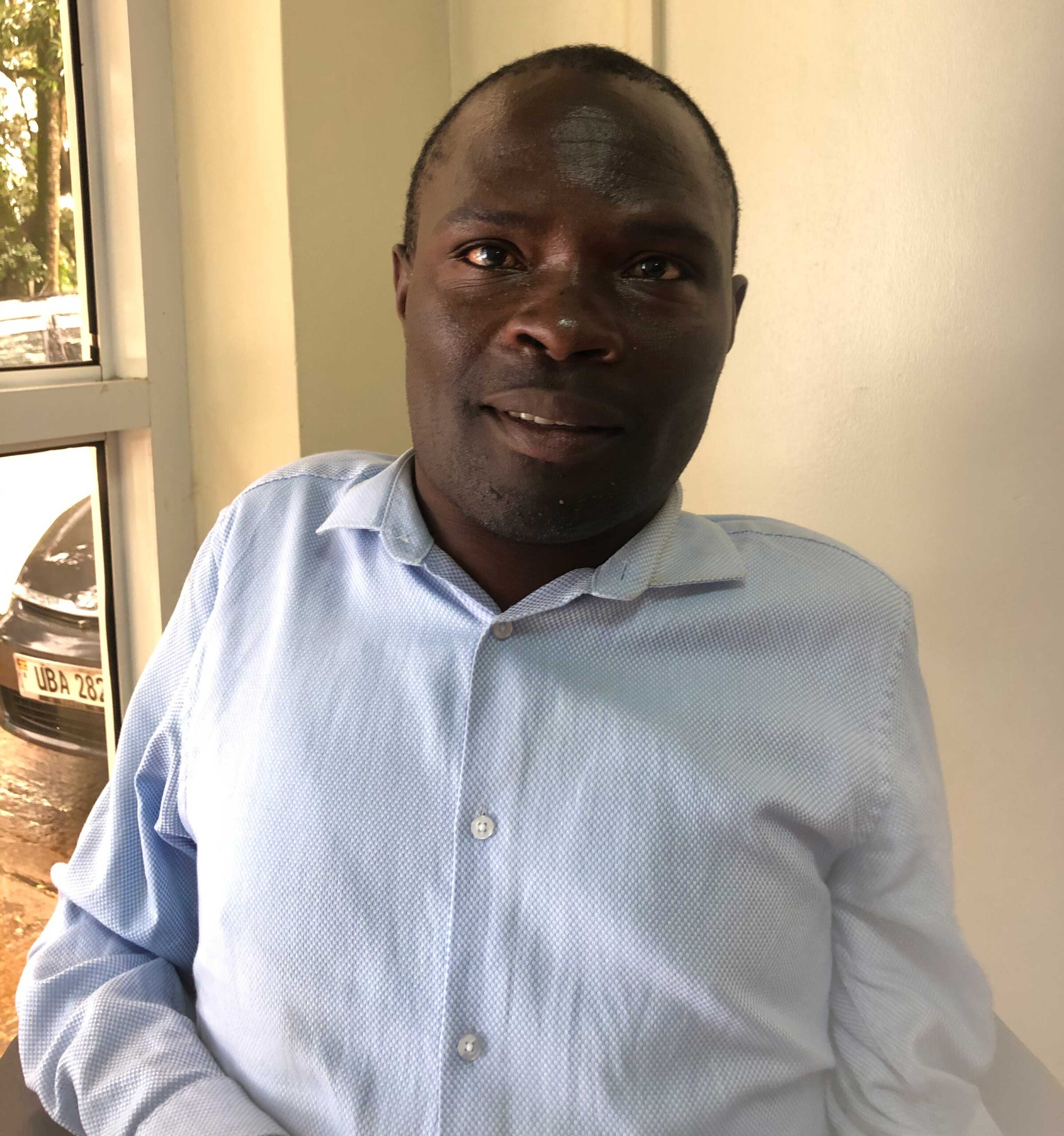
Training that raises awareness and understanding, builds advocacy skills, increases confidence and strengthens networks between local OPDs is an important way of supporting the Disability Movement. Ronald says “Training has built my capacity as a person, as an activist and as an emerging leader within disability, I talk with confidence and have the skills to talk about the CRPD, the rights inherent in the CRPD, and the Sustainable Development Goals…I now talk with different partners and governments.”
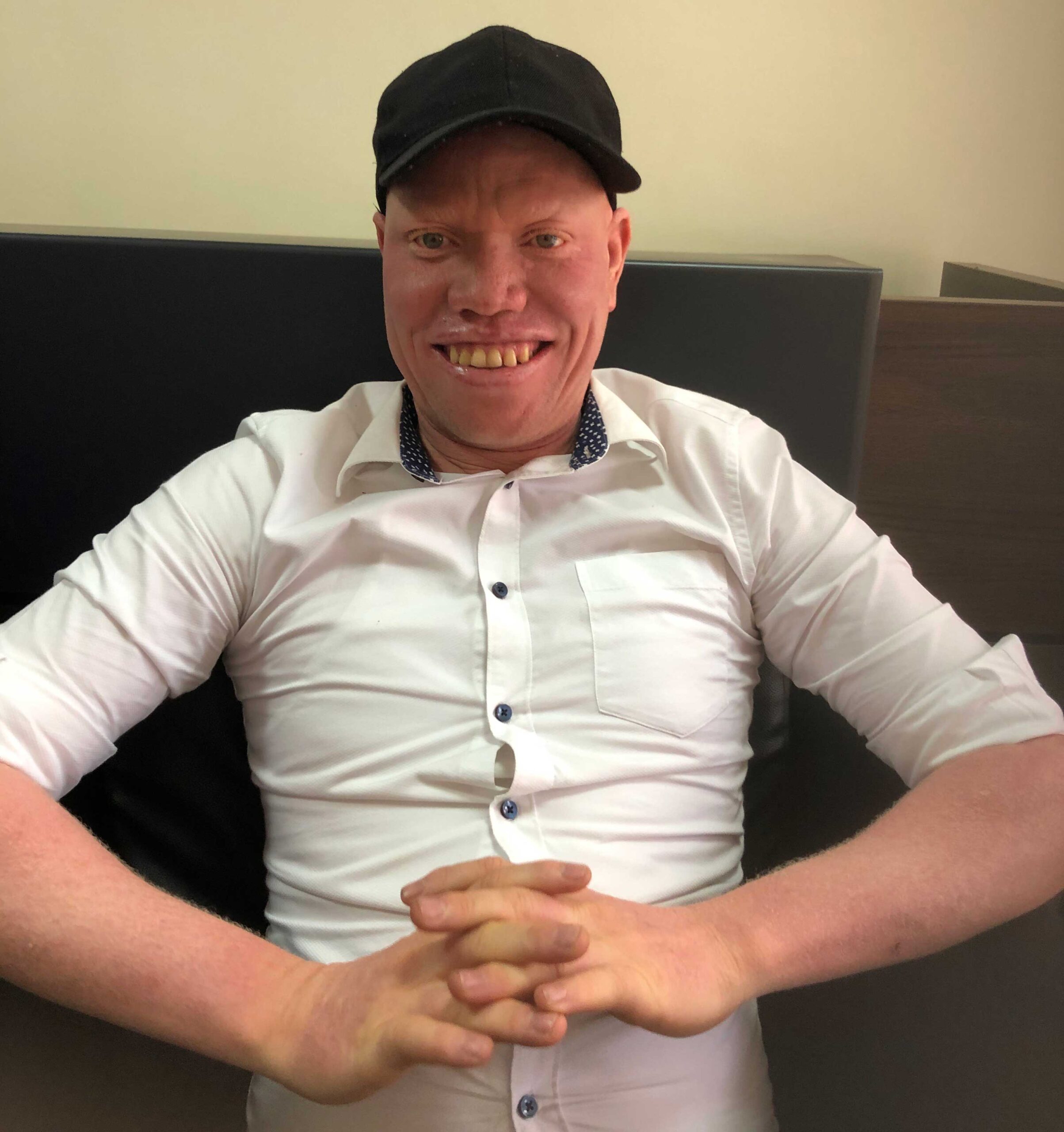
The CRPD helps to highlight when policies or processes that exclude people with disabilities need to change. Simon Okwi’s understanding of and confidence in claiming his rights has increased because of Uganda’s adoption of the human rights approach to disability. “We have the definition in our new amended Disability Act of 2019. Having a human rights based approach and understanding of disability that is a big improvement.” The human rights approach to disability recognises, protects and promotes the inherent rights of people with disabilities.
Simon, who works for Downs Syndrome International, told us he advocates to the highest level of government, recognising that they set the formal framework within which people can live without stigma and discrimination. “My advocacy has focused mainly on reforming the law in conformity with the UNCRPD and also how policy can be inclusive of … all categories of persons with disability. “
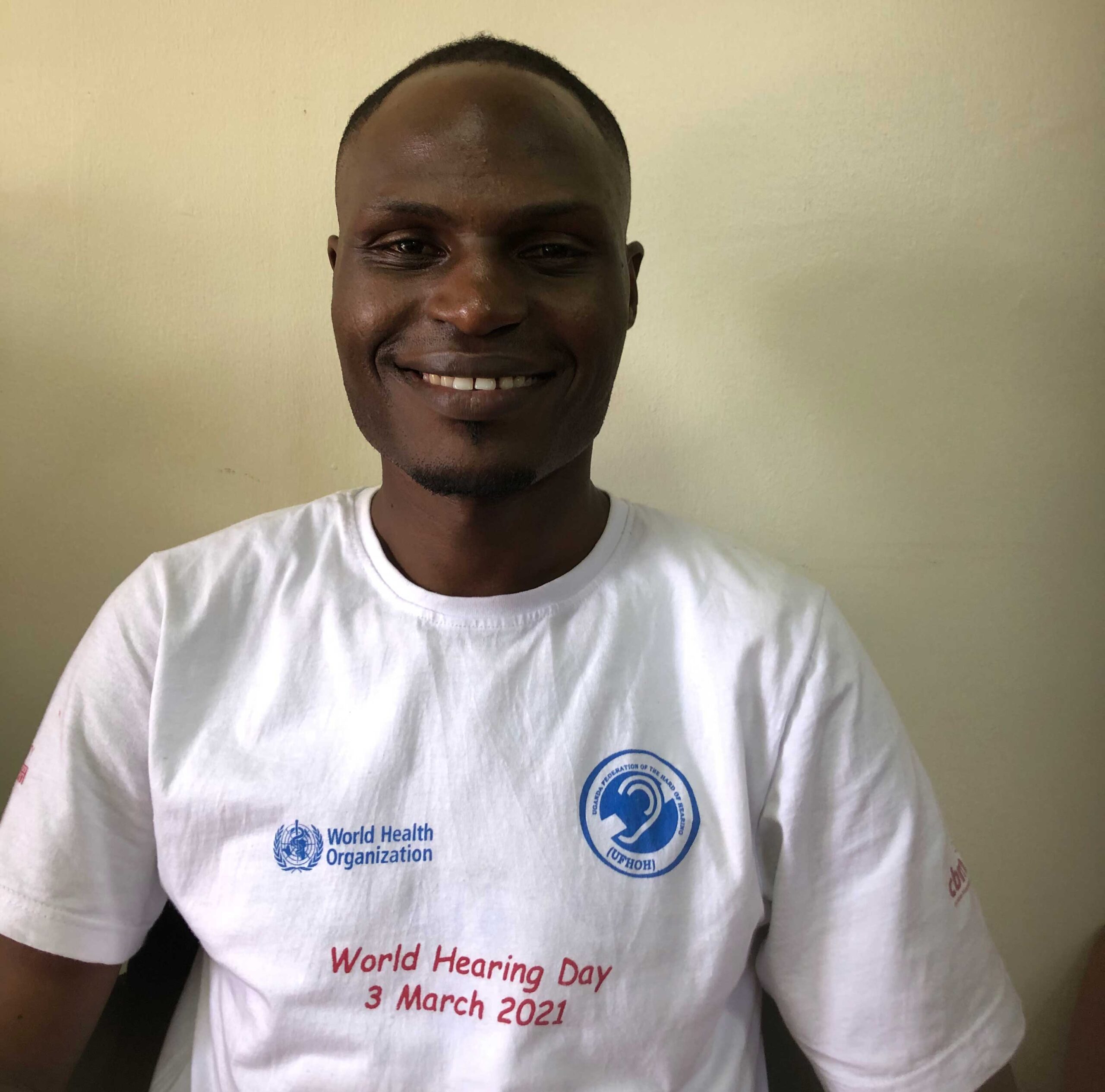
It is vital that people with disabilities understand their rights under the CRPD so that they can demand changes that will enable their full participation. Moses Serwaddam, a Programme Manager for Ugandan Federation of the Hard of Hearing, told us that being trained in both legislation and advocacy approaches have equipped him to be an activist:
“Something that I think now is giving me extra confidence whenever I go, I want to see that issues of disability are dealt with in the way that the CRPD is demanding.”
Moses, who is hard of hearing, uses his knowledge to advocate for all people with disabilities in Uganda to create positive change. “Bridge has been a very important training for me sincerely speaking, to give me insights about inclusive disability, it broadened my understanding about how I understand different categories of disability.”
Simon, Ronald and Moses are driving change in their organisations and their communities, and speak with real passion about sustaining the progress of the disability movement in Uganda. CBM UK is committed to working alongside people with disabilities and their representative organisations (OPDs). Listening to and partnering with the Disability Movement is vital if we’re to identify and work towards solutions that contribute to a more inclusive world.
Footnote:
Ronald, Simon and Moses took part in the CBM-supported Bridge CRPD-SDG training programme. Bridge CRPD-SDGs Training Initiative is an intensive training programme developed by the International Disability Alliance and International Disability and Development Consortium for organisations of persons with disabilities, covering the UN Convention on the Rights of Persons with Disabilities (CPRD) and Sustainable Development Goals (SDGs), to reinforce their advocacy for inclusion and realisation of rights of persons with disabilities.

